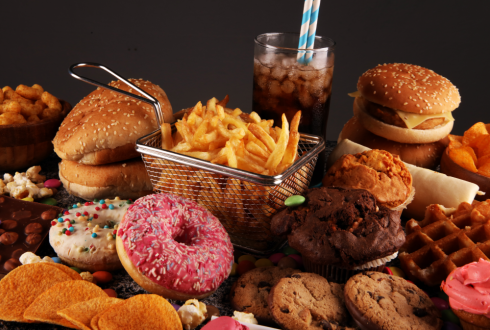Most Dutch people did not change their diets during the first Covid-19 lockdown, but more overweight and obese people said they ate less healthily, and higher-educated people also ate more unhealthy food during this period. These are the conclusions of recent research carried out at Wageningen University & Research.


Researcher Dr Maartje Poelman of the Department of Consumption and Healthy Lifestyle carried out in-depth analyses of research on eating patterns and food purchases conducted by the Netherlands Nutrition Centre among 1,030 people five weeks into the first lockdown (from April of this year).
Eating is habit-forming
Despite the far-reaching impact of the Covid-19 pandemic on daily life, a majority did not change their eating habits during the first lockdown. Most people in the study indicated that they did not eat differently (83%) or buy or order other food (73.3%). This shows how fixed our eating habits are and how difficult they are to disrupt. However, the in-depth analyses did reveal interesting socio-demographic patterns among those who did change their eating behaviour. More overweight and obese people said they had trouble making healthy food choices. We also noticed that women indicated more often than men that they found it harder to make healthy choices.
Obesity and healthy eating
Obese people were more likely to eat more and unhealthier during the lockdown and ordered more unhealthy meals than usual. For example, they said they ate more crisps and snacks and drank more soft drinks. This pattern is also visible in other countries. A possible explanation for this is the stress experienced due to the pandemic. “Stress is a logical psychological response to a pandemic [Rajkumar, 2020], but we also know that stress is associated with food consumption and obesity,” says Maartje Poelman. “It clearly shows how external factors – such as a lockdown and everything this involves – influence the eating behaviour of some people more than others. This has nothing to do with lack of self-control or willpower.”
Education level and working from home
Higher-educated people reported eating more unhealthily and buying more sweets and alcoholic beverages during the lockdown than those with lower education levels. An explanation may be that the daily routines of higher-educated people were more often disrupted by the lockdown, and therefore their eating habits as well. Researcher Maartje Poelman explains: “More higher-educated people more often worked from home than low-skilled workers: before the the lockdown, about 9% of both groups worked from home. During the lockdown, 56% of higher-educated people had to work from home, while this was the case for only 14% of low-skilled workers.”
Ordering online
Of the people who already ordered food before the lockdown, about 30% said they did so more often during the lockdown. Higher-educated people and young people did so the most. This can be explained by the fact that higher-educated people were used to eating out more often pre-lockdown than less educated people (Lachat et al., 2012). People also supported their local restaurants by ordering more food online.
Reasons for eating more or less healthily
Of the people who said they planned to eat healthier food during the lockdown, 30% said they would do so to boost their resistance. The link between serious Covid-19 complications and obesity as reported in the media may explain this choice. Other reasons given for healthier eating behaviour during the lockdown were that people had fewer temptations at work (such as birthday cakes or snacks) and there were less enticements caused by eating eat out (such as delicious desserts). Working from home also meant there was more time to prepare healthy meals. Reasons given for less healthy eating were the unhealthy temptations at home and the fact that people had more time to cook large meals or bake cakes. The dangers of boredom, more free time, more stress and less social control also played a role in the responses.



































